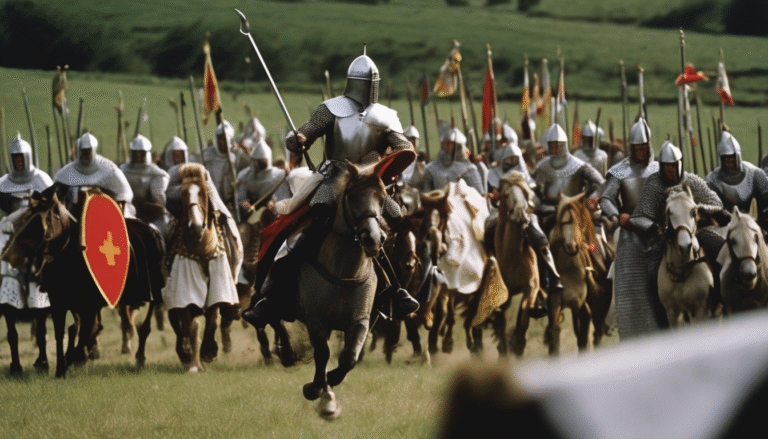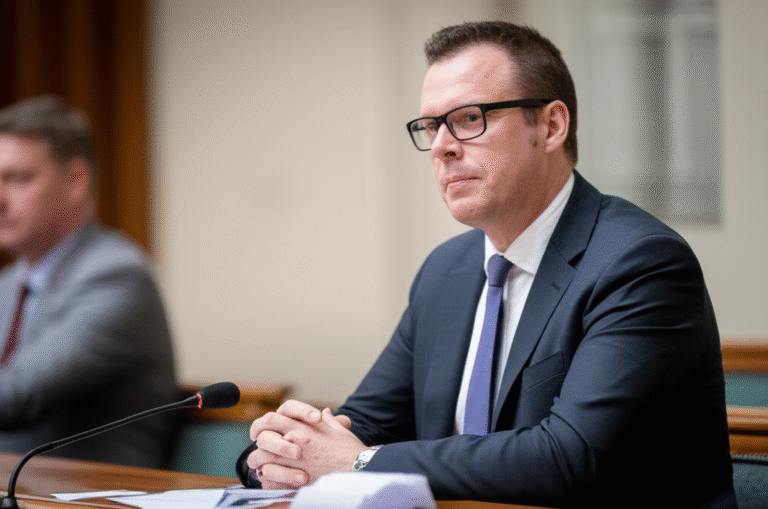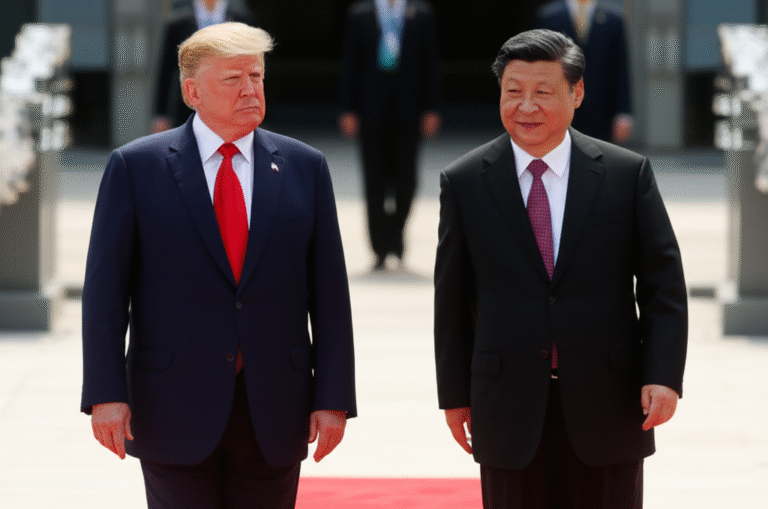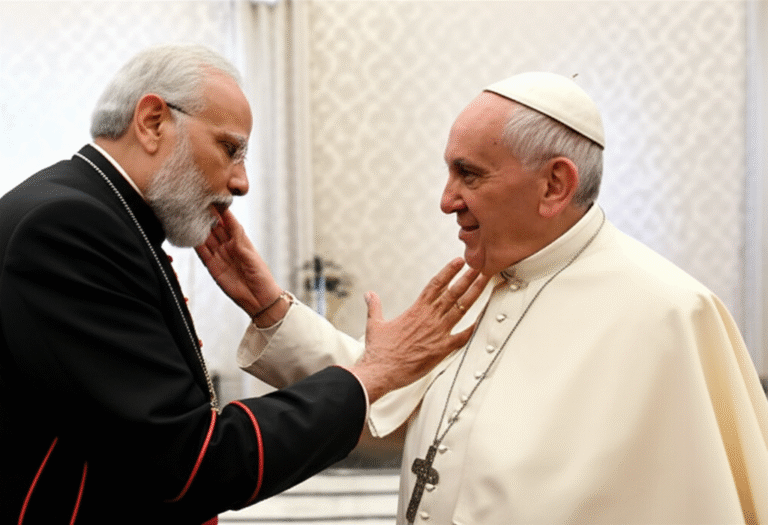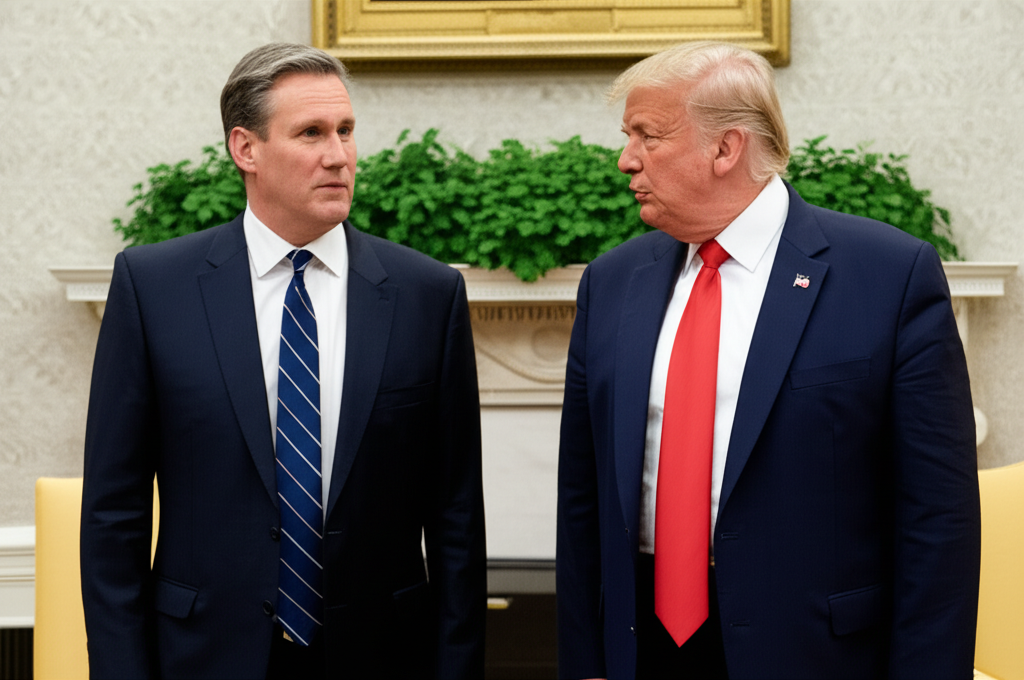
LONDON – U.S. President Donald Trump is scheduled to meet with British Prime Minister Keir Starmer on Thursday for discussions intended to center his second state visit on global affairs and a significant package of US investment in Britain. The meeting follows a day of royal pageantry and aims to highlight economic cooperation rather than domestic political challenges facing both leaders. The talks are set to culminate in the celebration of a £150 billion (US$205 billion) package of American investment into the United Kingdom, a key component of Starmer’s efforts to cultivate the ‘special relationship’ between the two nations since Trump took office in January.

The diplomatic engagement is structured to produce a positive international narrative for both administrations. After participating in a day of pomp and ceremony that included a carriage ride with King Charles and a state banquet, the U.S. president and the British prime minister will turn their attention to substantive economic and foreign policy matters. The core of the economic discussion is the large-scale investment deal, which is poised to reinforce transatlantic ties and provide a significant boost to key sectors of the British economy. Both leaders are expected to present a united front, emphasizing the mutual benefits of this enhanced economic partnership.
The Centerpiece: A £150 Billion Investment Package
The cornerstone of the bilateral discussions is the unveiling of a £150 billion (US$205 billion) investment package from the United States into Britain. This substantial financial commitment is designed to offer a tangible renewal of the so-called ‘special relationship’. Prime Minister Starmer has reportedly worked diligently to cultivate this relationship since President Trump’s inauguration, and this deal serves as a major deliverable of those efforts. The investments span several critical and high-growth areas, including technology, energy, and life sciences. For the Starmer government, which is facing domestic pressures, securing this package allows it to demonstrate Britain’s continued attractiveness as a premier destination for global capital and to highlight the benefits of close alignment with the United States. The deal signals a powerful vote of confidence in the British economy and its future prospects in strategically important industries. The breadth of the investment underscores a shared vision for economic growth and innovation between the two allied nations.
A Strategic Technology Pact
A significant portion of the overall investment is a new technology pact valued at £31 billion (US$42 billion). This deal involves commitments from some of the world’s leading technology firms, including Microsoft, Nvidia, Google, and OpenAI. These companies have pledged to make these investments over the next several years in cutting-edge fields. The focus of this technology pact is on areas critical to future economic competitiveness, such as artificial intelligence (AI), quantum computing, and civil nuclear energy. This particular agreement aligns with Britain’s strategic goal to be a global leader in technology and innovation. By attracting substantial US investment in Britain from top-tier American companies, the Starmer government can claim a major victory in positioning the UK at the forefront of the next technological revolution. It also reinforces the country’s status as a key partner for the United States in developing and deploying advanced technologies, which have implications for both economic prosperity and national security. The deal is expected to create jobs and foster a new generation of tech talent within the UK.
Navigating Domestic and Political Sensitivities
Despite the focus on positive economic news, the meeting is not without potential difficulties. Later on Thursday, Trump and Starmer are scheduled to hold a joint press conference where journalists may raise sensitive topics. One such issue is the late sex offender Jeffrey Epstein. The topic gained prominence for the Starmer government after he was compelled to dismiss Peter Mandelson as ambassador to the U.S. last week due to the documentation of his close ties with Epstein. President Trump’s own past relationship with the financier has also been subject to public scrutiny, creating a potentially awkward dynamic for both leaders. The situation highlights the delicate balance Starmer must strike between celebrating international cooperation and managing domestic political fallout.
For Starmer, he is having a difficult domestic time and he needs a positive international narrative and to bring Trump on board on key issues. — Evie Aspinall, director of the British Foreign Policy Group think tank
Prime Minister Starmer also hopes to steer President Trump away from other sensitive areas, such as Britain’s online safety laws. The U.S. leader has been a vocal critic of what he perceives as restrictions on free speech, recently cheering the suspension of late-night host Jimmy Kimmel over comments made about a conservative activist. Trump has a history of pressuring broadcasters to cease airing content he deems objectionable, a stance that could clash with the UK’s regulatory approach. According to Evie Aspinall of the British Foreign Policy Group, there is a mutual understanding of the benefits of a successful meeting. “For both sides, they realise there is a lot to be gained,” she noted, suggesting that Trump would also want to demonstrate the value in maintaining close relations with the British leader.
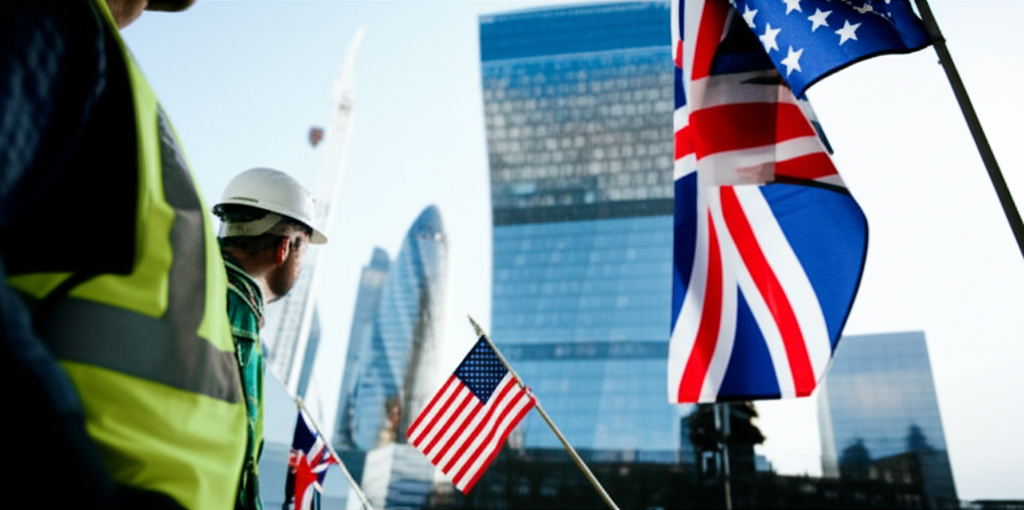
Background
The diplomatic talks on Thursday are taking place within the context of President Trump’s unprecedented second state visit to the United Kingdom. The visit began with significant pomp and ceremony, emphasizing the historic and cultural ties between the two nations. Trump was hosted by King Charles and rode in a carriage with the monarch, a traditional element of a state visit. He also attended a lavish state banquet at Windsor Castle, which is noted as the oldest and largest inhabited castle in the world. Speaking at the castle alongside King Charles, President Trump described the experience, stating his visit was “truly one of the highest honours of my life.”
During the state banquet on Wednesday, Trump delivered a speech that touched upon Britain’s historical influence. He stated that the British empire had “laid the foundations of law, liberty, free speech and individual rights.” He added that Britain “must continue to stand for the values and the people of the English speaking world.” This ceremonial backdrop was designed to set a positive and respectful tone for the more politically focused discussions scheduled for the following day.
- A £150 billion (US$205 billion) package of U.S. investment into Britain will be officially unveiled.
- The deals span technology, energy, and life sciences, aiming to renew the U.S.-UK “special relationship.”
- A specific £31 billion technology pact involves major companies like Microsoft, Nvidia, Google, and OpenAI.
- Foreign policy discussions at Chequers will cover Russia’s invasion of Ukraine and the conflict in Gaza.
- The meeting is part of President Trump’s second state visit, which included a royal welcome by King Charles.
Foreign Policy on the Agenda at Chequers
Beyond the economic announcements, Prime Minister Starmer will shift the focus to foreign affairs when he hosts President Trump at his Chequers country residence. A key objective for the British leader is to persuade his American counterpart to adopt stronger action against Russia in response to its full-scale invasion of Ukraine. This part of the discussion will test the alignment of the two nations on one of the most pressing global security challenges. Furthermore, Starmer is facing domestic pressure to address the Israeli assault on Gaza with President Trump. The U.S. president has publicly expressed frustration over Israel’s air strikes against Hamas leaders in Qatar but has remained broadly supportive of Prime Minister Benjamin Netanyahu.
The topic of the Israeli-Palestinian conflict presents another area of careful diplomacy. Trump has been critical of some European countries for their decision to recognize a Palestinian state, a move he described as “rewarding Hamas.” However, in a sign of potential flexibility or deference to a key ally, he told reporters that he did not mind Starmer “taking a position” on the matter. This suggests that while their approaches may differ, there is room for discussion without causing a major diplomatic rift.
What’s next
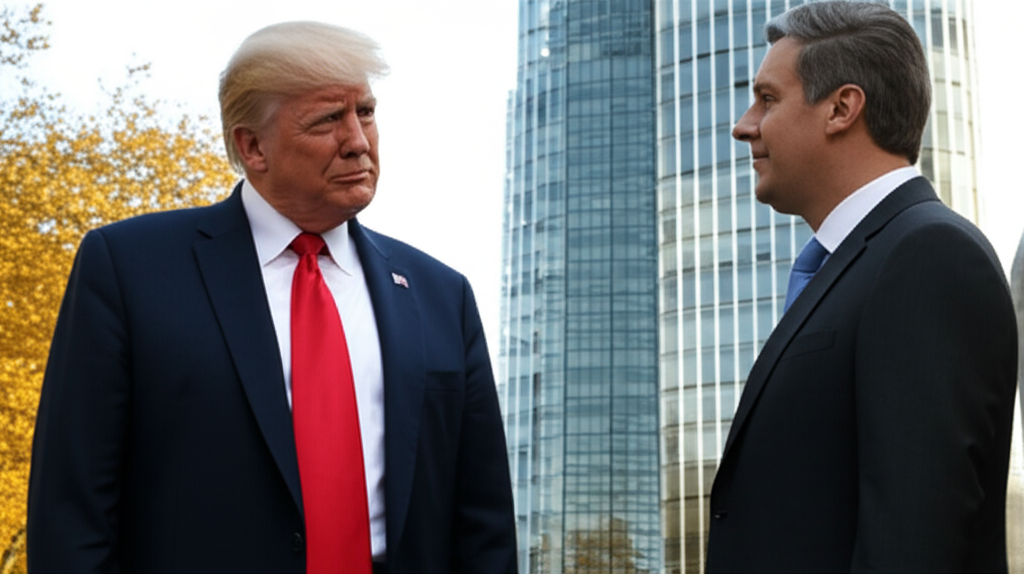
Following their private talks, the two leaders will face the press, where the carefully managed narrative of the visit could be tested by pointed questions on the more controversial subjects. While the visit is being hailed as a success for securing investment, expectations for progress in other areas are muted. According to comments from an official, the Starmer government appears to have resigned itself to the likelihood of not achieving any further reduction on U.S. steel and aluminium tariffs. Instead, the prime minister’s strategy is to emphasize Britain’s growing role as a primary destination for American capital, particularly in its robust financial services, tech, and energy sectors. The successful announcement of the investment package allows Starmer to pivot the narrative towards economic strength and partnership. The ultimate success of the visit will be measured by whether the positive headlines on investment and diplomatic cooperation can overshadow the potential for controversy. [Source]


